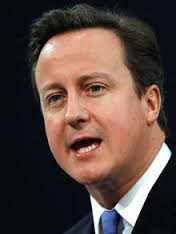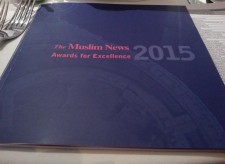By Michael S. Daventry
LONDON (AA) : It was the speech that critics and supporters alike had sought for months, perhaps even years.
Prime Minister David Cameron had long ago declared his intention to renegotiate the terms of the Britain’s EU membership.
It was a key plank of the election manifesto that saw him re-elected to office with an unexpected majority in May. Cameron’s Conservative Party had promised to negotiate new rules with the EU and “put these changes to the British people in a straight in-out referendum on our membership” by the end of 2017.
But until Tuesday, very little was known about what precisely the prime minister was hoping to renegotiate.
In a speech delivered at foreign affairs think-tank Chatham House in London and later summarized in a formal letter to European Council President Donald Tusk, Cameron said he was launching the “formal phase” of the renegotiation.
He warned that this was the “only chance” to get the renegotiation right: “When the British people speak, their voice will be respected – not ignored.
“If we vote to leave, then we will leave. There will not be another renegotiation and another referendum.”
Cameron said he understood that every negotiation “must involve just that – negotiation” but insisted the U.K.’s demands should not be ignored.
“Britain is the second biggest economy in the EU,” he said. “We are the second biggest contributor to the EU budget. Along with France, we are its foremost military power.
“We gain from the union but we bring a lot to it. We believe very strongly that if a major member state has major concerns, concerns which it has been voicing in a measured and constructive fashion over a number of years, then it is entitled to expect those concerns to be addressed.”
Britain wants to conduct its renegotiation with the EU in four main areas – the single currency, the role of national parliaments, EU competitiveness in the world and migration controls.
Cameron said the U.K. “never will be” part of the eurozone but said countries outside the Euro risked being discriminated against through plans for further integration.
“Non-euro members like Britain, which are outside the eurozone, need certain safeguards in order to protect the single market and our ability to decide its rules, and to ensure we face neither discrimination nor additional costs from the integration of the eurozone, because the European Union and the eurozone are not the same thing,” he said.
“If the European Union were to evolve into a single currency club where those outside the single currency are pushed aside and overruled, then it would no longer be a club for us.”
– ‘Real democracy’
National parliaments were, Cameron said, “the main source of real democratic legitimacy and accountability in the EU” and needed a greater say over law-making in the bloc.
He accepted introducing a veto for each of the 28 parliaments would cause “gridlock” but added: “We want to see a new arrangement where groups of national parliaments can come together and reject European laws which are not in their national interest.”
On Europe’s competitiveness, Cameron said the EU risked falling to a competitive disadvantage against countries like China and India. European businesses needed to see targets to reduce the “burden” of regulations that are set upon them by the bloc, he said.
Meanwhile, he said freedom of movement had become a more urgent issue in light of the refugee crisis facing Europe.
Cameron said citizens of new EU member states should not benefit from unrestricted movement until their economies converged with existing members. The UK needed to “reduce the current very high level of migration from within the EU into the UK”.
The much-vaunted renegotiation is not just an attempt to solve Britain’s perceived troubles with the EU. It is also a move to pacify rebellious Conservatives, many of who would prefer to cut the U.K.’s ties with the EU entirely.
Pat McFadden, a spokesman for the opposition Labour Party, said there was “nothing [Cameron] can renegotiate which will satisfy the large numbers of Conservative MPs who want to take Britain out of the European Union at all costs.”
The many Conservative parliamentarians who spoke at a House of Commons debate on Tuesday afternoon appeared to suggest McFadden had a point. One, Jacob Rees-Mogg, called Cameron’s speech “pretty thin gruel, much less than people had come to expect from the government”.
He added: “It needs to do more. It needs to have a full list of powers that will be restored to the United Kingdom and to this parliament, not vacuously to parliaments plural.”
Another Conservative MP, Peter Lilley, said Cameron needed to avoid symbolic changes and “focus on getting back powers which are not required to run a common trading area so that this parliament can make more of our own laws and hold our lawmakers to account”.
And Nigel Farage, leader of the U.K. Independence Party that advocates Britain’s withdrawal from the EU, dismissed Cameron’s speech as “an attempt to portray a new ‘third way’ relationship with Brussels that is simply not on offer”.
Opinion polls have so far shown a healthy lead among voters who would choose to keep the U.K. inside the EU. But as last year’s Scottish independence referendum showed, British public opinion can change at remarkable speed.
Given his rebellious party, Cameron will be taking nothing for granted.

















